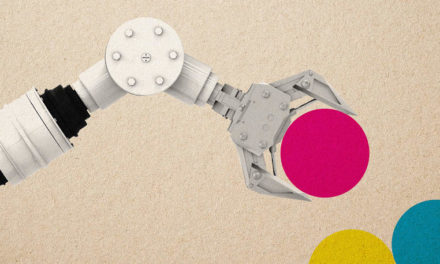Career News, PayScale —
When it comes job searching, interviews are how you know things are getting serious. By this point, you’ve researched the company, know what you’re looking for, have made it past the revolving door of hiring manager hurdles, and have snagged yourself a place in the hot seat. Looks like your search is heating up!
But make no mistake, interviews aren’t just about making a great impression. Ideally, they’re about discerning a mutual fit.
Ask these job interview questions to figure out if this is the role for you.
1. How do you envision a typical day in this role?
Whether you’re up for a management role, a content creation position, or a spot on the strategy or sales team, it’s important to understand what’s expected of you — and how the company envisions you’ll accomplish it — from the get-go. If there’s someone in the role already, try to get a sense for how they break up their time to accomplish the necessary tasks. If this is a new position, spend some time talking through how the manager envisions your days looking. This is also a good way to get a sense for how the workflow moves, when people arrive to work each day, how many meetings to expect, and how much flexibility there is built into the culture.
2. What makes you happy to come to work every day?
This question packs a double whammy, as it gives the interviewer a chance to gush while simultaneously showcasing your commitment to doing work you’re proud of. The simple fact is that most people love to talk about their passions, and if you’re interviewing with someone who really loves what they do, singing the praises of the company should come easily. Pay attention to what the interviewer says here, too, and look for subtle, stand-out clues of real satisfaction. Does she talk about how to company takes care of its people? Is he jazzed about their social mission? Is she all about creative problem-solving? Relish this part of the conversation; it’s one of the surest ways to see whether or not you’ll be a fit.
3. How would you describe the mission of this company?
And spoiler alert: it shouldn’t just be financial. Not every company has altruism embedded into their bottom line, but it’s safe to say that whoever you’re hooking your boat to should have some sort of greater goal in mind. Maybe they want to disrupt the industry. Maybe they’re looking to revolutionize how XYZ happens. Maybe they’re trying to eradicate a social injustice. Either way, make sure the person you’re interviewing with is both able and excited to share the mission of the company with you.
4. How do you handle issues?
Is there a standard HR protocol? Does HR even exist? This can be a scary question to bring up during an interview, but if you’re leaving your former job based on dissatisfaction for how process was implemented or how issues were handled, you might want to get a sense for what to expect moving forward. There’s nothing worse than finding yourself stuck in an aggressive environment or working under a loose-lipped boss.
5. What supports are in place to help me succeed in this role?
If you’re taking a major step forward in terms of responsibility or work level, it’s okay to feel a little nervous — and to be upfront about that. The best interviews are about finding a great fit on both sides, and there’s no easier way to do that than to be honest. If you’re wondering about how you’ll handle a certain part of the job description, ask the interviewer how they eased into the role (or eased the former employee into it) previously, and what protocol will be if things get off to a rocky start. This conversation helps put the two of you on the same team, and lets you brainstorm hypotheticals together. It also helps to foster a sense of responsibility in both parties, which can definitely come in handy down the line during goal-setting and performance reviews.
6. Are there opportunities for growth?
When looking for your next opportunity, consider this approach: if you can’t see yourself being at the company for at least three years, you probably shouldn’t take the job. That’s not to say you have to stay in the same role, though. Be open about the types of opportunities you’d like to work toward in the future in the interview, especially if your move feels a little more lateral than you’d like. Being transparent about your desire to be groomed for responsibility shows the interviewer that you’re a dedicated employee, and that their investment will pay off in the long run.
7. What’s the first thing I need to accomplish in this role?
If it seems like you’re going to have a laundry list of responsibilities and expectations, use the interview to understand which ones you’ll be graded on first. Don’t be afraid to talk in specifics, either: the surest way to get on the same page is by making sure everyone understands what’s been agreed to. Plus, this will give you a clearer picture of the tactical things the hiring manager is looking for in a candidate.





